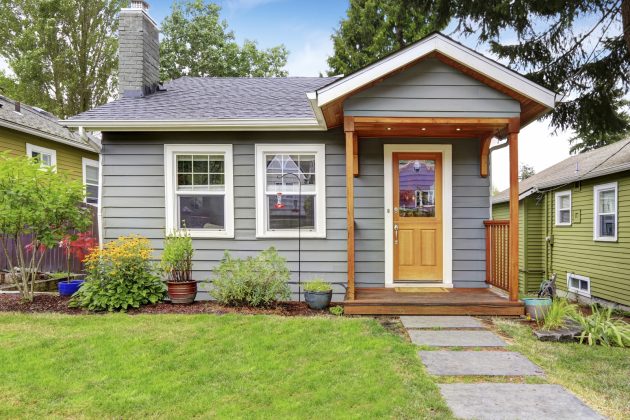While the state of first-time home buyers hasn’t changed much over time — they’re moving from rentals to starter homes — the characteristics of these new buyers have evolved. According to
our research, almost half of buyers (47 percent) are purchasing for the first time. First-time home buyers are older, and they’re selecting more expensive homes than they have in the past.
What does this mean for real estate agents? Understanding what drives a buyer’s decisions can help you adjust your sales approach so you connect, land more clients and close more sales.
They are typically older – often millennials
The median age of the first-time home buyer is 33, and nearly 6 in 10 (56 percent) are millennials (ages 18–34). They may have paid off student loans or are close to it, so they can invest even more in their home. They could have an established career with a reliable income. Some have started families and might want homes away from a busy downtown area. Make sure you
understand their specific needs and
select listings might be a departure from the what you think this kind of buyer would usually consider.
Millennials are tech-savvy and research independently, so understand that they are constantly on the hunt for information. They prefer to start their search online, but they also might have a specific type of home or list of features they want.
Listen to what they want and only show them homes that meet their minimum requirements. Also, more than half of all millennial buyers (54 percent) purchase a home within a community that has shared amenities, so
show them newer neighborhoods as well as larger condo complexes or buildings with their key features.
Consider this: In today’s “always on” world, people work longer hours, are more stressed and rely on technology to ease their load. Find out how buyers want to search and deliver the experience they respond to — it will make the process easier for them and they’ll appreciate you so much more.
They may actually be reluctant to buy
Even as they shop for homes, most first-time home buyers seriously consider staying renters. A first-time home buyer might not realize there are more costs associated with buying a home than just the purchase as they move from rental housing. You may need to educate them on property taxes, legal fees, utilities, furnishings, maintenance, association fees and unexpected emergencies. Let them know that purchasing a home is often more financially beneficial in the long run, and make sure they
understand the complexities when they take on a mortgage and a new home.
But since they don’t have to worry about losing their deposit because of thumbtack holes in the walls, today’s first-time home buyer might be
more open to fixer-uppers that they can truly make their own.
Consider this: First-time buyers “don’t know what they don’t know.” Have a first-time buyer meeting. Offer to sit down and explain what to expect. Outline what they need to be aware of, and provide a comfortable setting to get their questions answered. Setting up a safe, comfortable space will allow you to get quality time with a prospective client.
They are likely shopping for (at least) two people
Most first-time home buyers (73 percent) are shopping with a spouse or partner. Consider sharing some issues with them, such as tax filing status and cohabitation agreements. If the household includes kids, be prepared to show them
homes close to good schools or daycare. These first-time home buyers might also be partners in search of a house that they intend to flip, so you might include
candidates for investment.
Consider this: Really get to know your buyer. Where do they currently live? How long have they been looking for a new home? What do they want to communicate with you? Do they prefer private or escorted open house showings? The more you know about the buyer, the better you can adjust your approach to give them a less stressful, but outstanding experience.
Their income has remained relatively flat year over year
If home values increase, but incomes stay flat, first-time home buyers might economize on the homes they look at. Make sure you’re well-versed in
listings that could be hidden bargains or
neighborhoods that are up-and-coming. If your buyers are open to the possibility of a real estate rollercoaster ride, you might even pitch the
idea of a foreclosure.
Consider this: Be mindful of the typical home-buying process and respond accordingly. When you meet a buyer, you don’t know what stage of the process they’re in until you ask. They might still be “dreaming,” doing research or actively looking. If they give you their email or phone number, accept it with grace: Follow up once, offer to be a resource, or to meet — and then, back off. If they want to engage more with you, let them make the next move.
They are buying more expensive homes
Historically, a first-time home buyer purchased an “entry-level” or “starter” home, which often meant an older home with only one or two bedrooms. Many first-time home buyers are purchasing more expensive homes — a median of $200,000 — and exceeding their budgets to do so (39 percent). Perhaps it’s due to lack of more affordable inventory or because they saved more money for their down payment, but in either case, you can help these clients by including
homes they can see themselves living in for much longer.
Consider this: As buyers figure out their housing finances, they’ll probably worry about where your compensation figures into their budget since they often don’t know how it all works. Explain who pays for what, that providing your services does not guarantee you will be compensated (be tactful) and provide them with an out if they feel the relationship isn’t working. They’ll appreciate you tackling an often-awkward topic head-on and might feel more comfortable working with you.
They are very particular about finding the right real estate agent
First-time home buyers spend considerable effort choosing a real estate agent. They read online reviews (62 percent), check sales history (39 percent) and ask friends and family for referrals (61 percent).
Regard each inquiry or open house visitor as a future client. When you engage with them for the first time,
avoid being pushy or withholding information if they don’t seem “serious” to you. Nothing turns off a buyer, especially a first-time one, more quickly than feeling pressured.
Consider this: Act as a resource early in the process. Offer them your knowledge and answer their questions. Share valuable insights and make it clear you’re doing this with the hopes of earning their business down the road. Handholding a newbie potential home buyer takes more time and more energy than more experienced buyers, but in the end, they’ll appreciate your straightforwardness and be more likely to come back to you once they are further along in their search.
Landing any client can be a challenge, but as the characteristics of a typical buyer changes, you have to adapt or you won’t get their business. You have to meet them where they live, and understand what drives their decisions, so you can modify your approach and build a relationship they trust. While outstanding customer service is a pillar of relationship building, knowing what’s behind a client’s process — and responding thoughtfully — is the foundation.
Source: zillow.com














